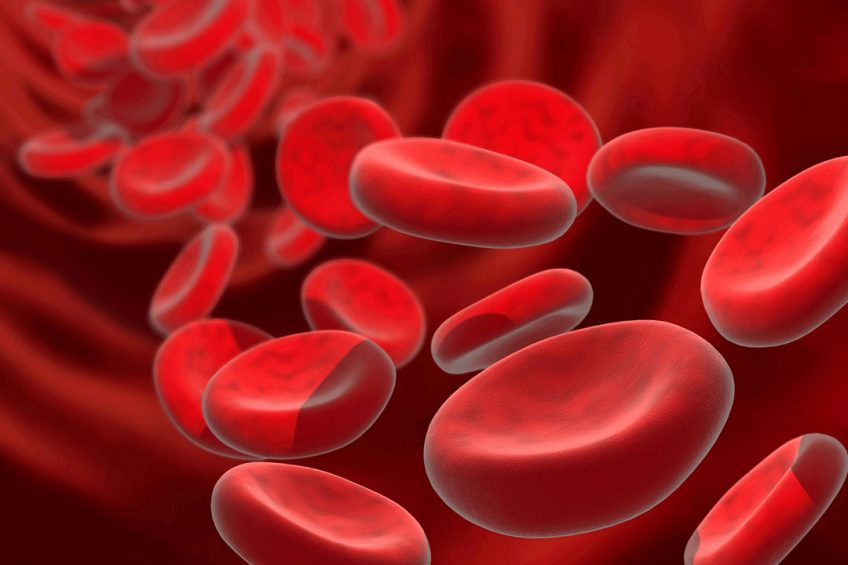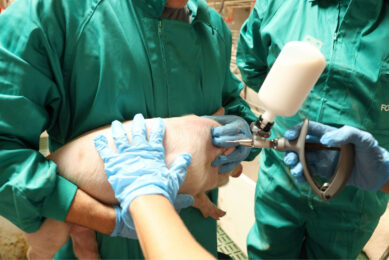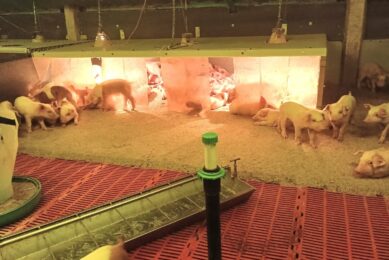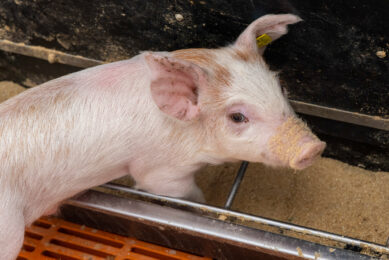Fermented rapeseed meal impacts pig blood values

Recent Polish research showed that the use of fermented rapeseed meal in sow diets resulted in a better use of mineral compounds, improvement of production effects and health parameters of sow and piglet blood.
The research, carried out by researchers at the University of Life Sciences in Lublin, Poland, was published earlier this year in the open access journal Annals of Animal Science.
Assessing pig health and welfare through blood
In the paper, the scientists describe how animal health and welfare can be assessed using biochemical and haematological markers of the blood. The values of these parameters depend in part on the quantity and quality of feed ingredients, i.e. feed protein and feed additives.
The team wanted to determine the effect of including fermented rapeseed meal (FRSM) in a dry feeding system on haematological and biochemical blood parameters of sows and piglets. The experimental material comprised 30 primiparous gilts and 30 multiparous sows after their second lactation.
They were randomly divided into 2 groups of equal size.
- Control group (15 gilts and 15 sows), receiving a standard diet for pregnant or lactating sows, depending on the reproductive period.
- Experimental group (15 gilts and 15 sows), receiving feed with a 4% share of fermented rapeseed meal instead of soybean meal up to 100 days of gestation. In addition, from day 100 of gestation to day 7 of lactation, the sows in these groups received feed with a 9% share of rapeseed meal, and then again a diet with a 4% share of rapeseed meal until the end of lactation.
Blood samples at different moments of the sows’ lives
The scientists took blood samples from 6 animals from each group in 2 periods: at 100 days of pregnancy (late pregnancy) and at 27 days of lactation (late lactation). They also took blood from piglets at 27 days of age (before weaning), from 2 piglets from each sow (1 gilt and 1 barrow), taking into account the average body weight in the litter.
The team determined haematological parameters in whole blood, just like the plasma content of minerals, activity of selected enzymes and biochemical parameters of sows, gilts and piglets.
The diet containing fermented rapeseed meal, fed to pregnant and lactating sows, increased the level of haematocrit (Ht) and haemoglobin (Hb) and red blood cell (RBC) content and mineral content (phosphorus, calcium and iron) in the plasma. This effect was mainly observed in primiparous sows.
The inclusion of fermented rapeseed meal in the diet of sows reduced the plasma content of total cholesterol and triacylglycerols in sows and piglets, as well as liver enzyme activity, particularly aspartate transferase (AST) in piglets.
Better use of mineral compounds
The use of fermented rapeseed meal in sow diets resulted in better use of mineral compounds, improvement of production effects and health parameters of sow and piglet blood.
The research paper in Annals of Animal Science was authored by Anna Czech, Martyna Kiesz, Sylwia Kłys and Eugeniusz Ryszard Grela, University of Life Sciences, Lublin, Poland. European Protein, manufacturer of fermented rapeseed meal products, was involved in supplying the materials for trial.












